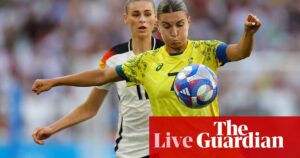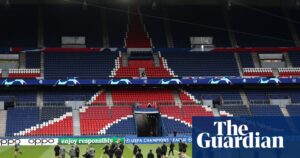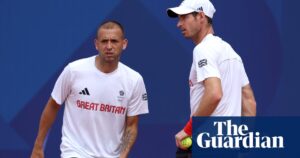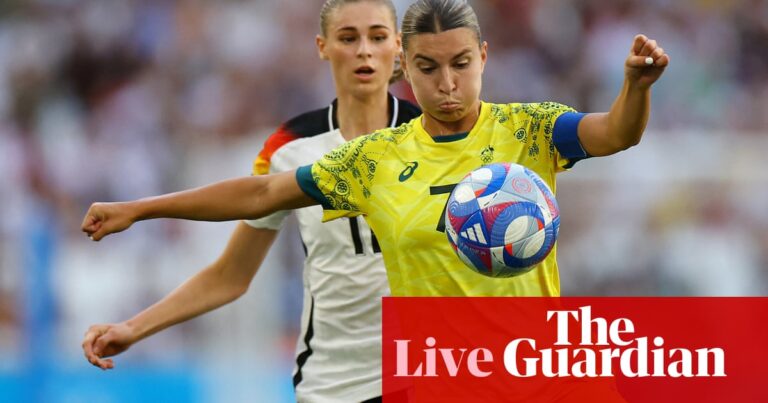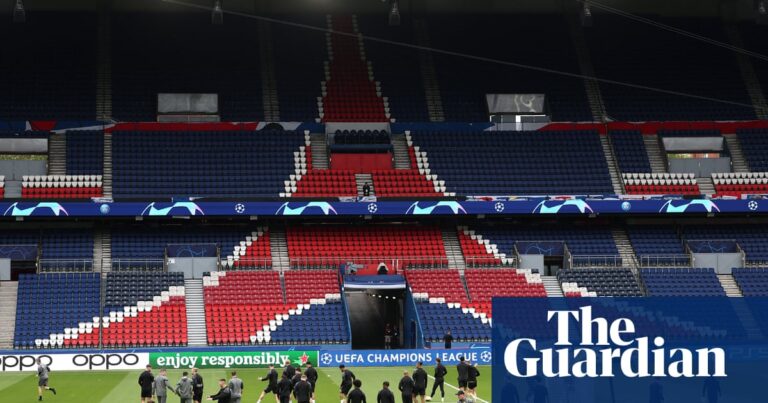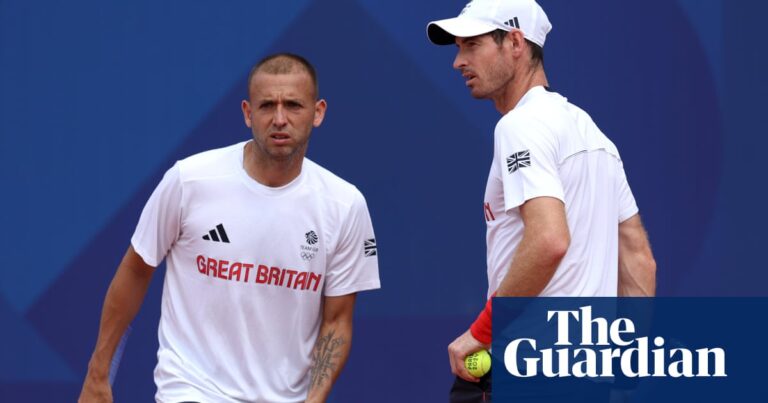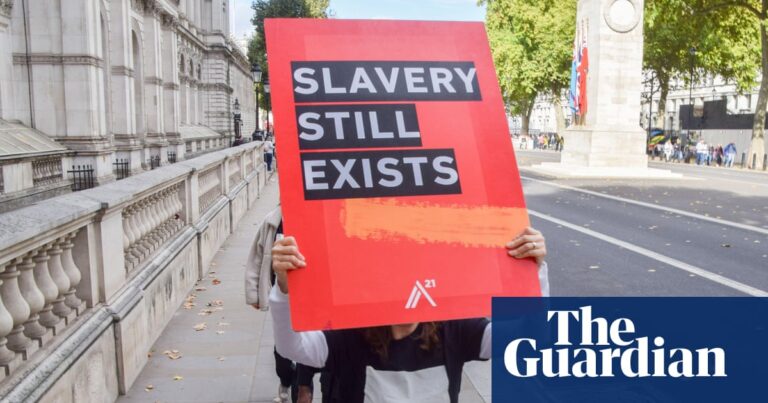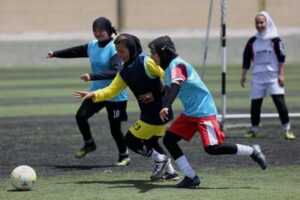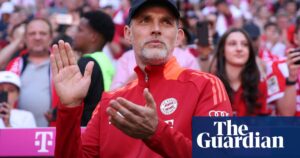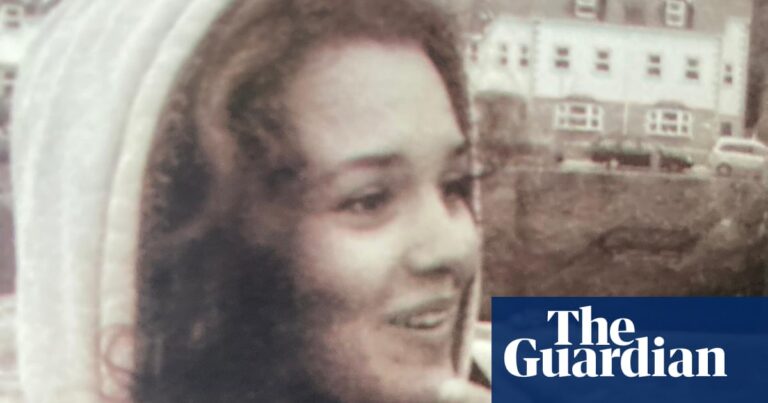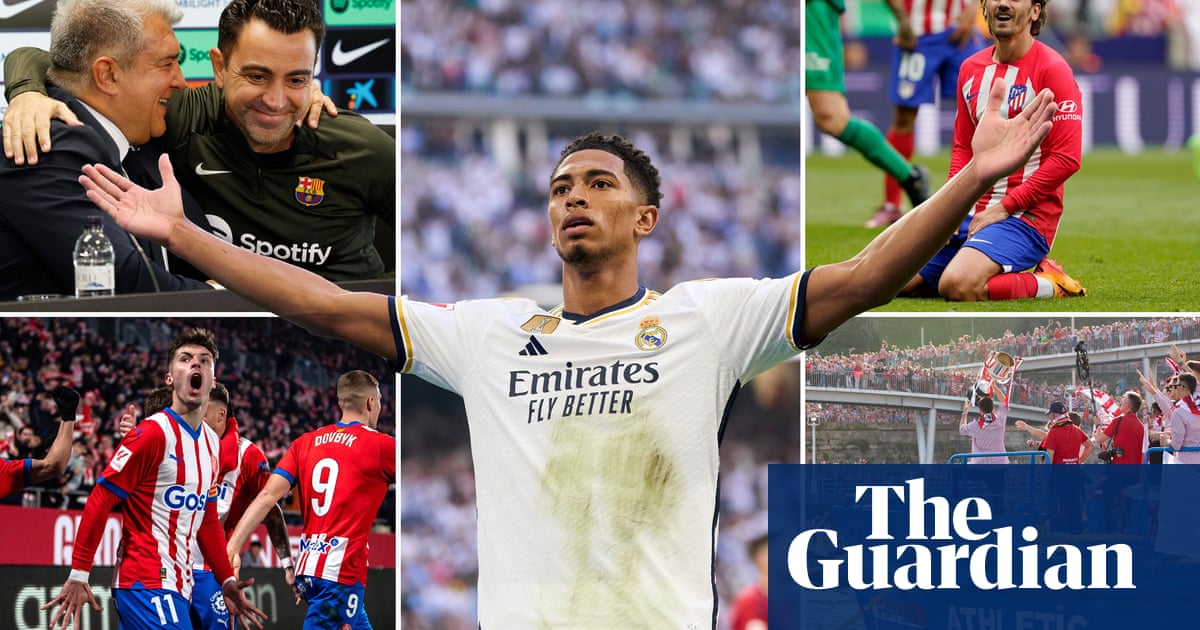
In the end the calendar was cruel, serving up a metaphor for the season, for football and for life. Like something out of a sitcom, someone had double booked a celebration and a funeral. Same time, same place: mid-May, a Saturday evening at Los Carmenes. Newly confirmed league champions Real Madrid had come to play Granada, who had just watched on television in the hotel as the relegation they long knew was coming finally got sealed, players sitting in tears en route to the ground, where it was all they could so to stand in formation, applaud their opponents on to the field and then lose again.
As for Madrid, they came, played, won and got out quietly, the party postponed. The Federation had suggested giving them the trophy that evening, but they said no. Instead, it was silently handed over behind closed doors the following morning, then taken on a bus down the Castellana to the statue of Cibeles, goddess of fertility and meeting point of Madridisimo. Carlo Ancelotti wore the shades, smoked the cigar, danced with Eduardo Camavinga, sang a while, and then got back to work ensuring they would be back again a fortnight later.
He had time on his side. Madrid had won the title seven days earlier and there were still three weeks to go. When La Liga reached its actual final day, it was already finished. So they immediately changed the kick-off times to every game bar one, because, hey, they’re only fans, right? It was decided: the title, second, third and fourth; who goes to the Super Cup and the Club World Cup; Champions League, Europa League and Conference League; relegation too. For the first time ever, the top eight and the bottom three was confirmed before the season concluded. Nine months on, they didn’t need the last game.
How far away the first felt, everything getting under way as over on the other side of the world Spain were winning the Women’s World Cup. Their success and the poignancy of Olga Carmona’s story was soon overtaken, or given another dimension, by Luis Rubiales kissing Jenni Hermoso and the still-going, sometimes surreal fall-out from it all, the Federation president’s mum locking herself in the local church.
It all began in Bilbao with Jude Bellingham standing before the Cathedral, arms wide, a gesture that everyone would see a lot of. It ended in Seville, where Xavi Hernández knew he was taking charge of his last game; Barcelona were one of eight clubs that didn’t even wait for it to be over before it was confirmed that their coach wouldn’t continue. Soccer does Sinatra: the manager who extended his contract in September, resigned in January and was convinced to continue in April, was sacked in May. That’s life.
That was no life at all, Xavi had said, the job of Barcelona manager “cruel and unpleasant”. Especially when it’s like this. He walked out and then walked back in again, where he was always on edge.
Good news came from the academy. Marc Guiu, 17, was 33 seconds into his senior career when he scored the winner against Athletic; Pau Cubarsi and Lamine Yamal were 16 when they got their debuts. Lamine still is: old enough to win awards sponsored by a beer but not to actually drink one. Fermin was 20; he finished last season in the third tier and this season in the Spain team. But if that was Xavi’s legacy, the league title he won in his first season was forgotten fast and there would be no trophies in his second; there was never really any chance of any either. After the first clásico, Ilkay Gündogan had warned that “Madrid and even Girona are going to run away”.
Although Barcelona improved, Girona were the season’s great revelation, the best La Liga had and the only side that competed for it, the nearest thing Madrid had to a challenger. Top in week seven, their coach Míchel said the only problem was that it was, well, week seven. The following Saturday they were defeated by Madrid, but would be back, leading the league as late as week 22, and playing the best football too.
A line-up that had experienced 38 relegations between them, a club that was playing only its fourth top-flight season ever and had a budget less than a tenth the size of Real Madrid’s, was actually starting to look like contenders. People began to use the L word: could they do a Leicester? Striker Cristhian Stuani once said: “I’ve never been lucky enough play for a team fighting to be champions”; now, at 37, he was. Sort of.
And then came the night Madrid hammered them 4-0 at the Bernabéu, a statement that said: that’ll do. Defeat came with a heavy dose of reality and, actually, a little bit of relief too, like Girona had been liberated from a lie. This was another level, another league, not for them.
Still, they had history to make. They were the first team to break up the Madrid-Barcelona-Atlético top three in 11 years, securing their first ever European place and in the Champions League too. “When I was at Rayo, there was a chant: ‘next year, Rayo-Liverpool’; I would like to go to Anfield,” Míchel said at the season’s close, what it all meant starting to sink in.
When Girona lost in Madrid, it was only February but it already felt final. No one else was going to fight. After Atlético won the derby in week seven, Antoine Griezmann turned to the camera and said: “Kids, wear your Atlético shirts to school tomorrow.” In the end, though, it was Madrid kits that were everywhere – mostly with “Bellingham” on the back.
Behind Bellingham, Griezmann had been possibly the league’s best player in the opening months, the outstanding footballer of 2023 becoming Atlético’s all-time top scorer, and his subsequent injury didn’t help. Álvaro Morata’s start was good enough to make this the best season of his career on 21 goals in all competitions, but only two of those came after January. Momentarily, it looked like an opportunity was opening in Europe, Inter defeated and Dortmund dominated, only for Atlético to fall apart in Westphalia.
Rodrigo de Paul’s claim they had a “great season” just annoyed supporters. Atlético were the only team to beat Madrid – twice, in fact. They had their share of the city’s Trilogy, three games in as many weeks and as many competitions. And at home they were superb, defeat against Athletic in the cup their first in 28 games. But that defeat rendered knocking out Madrid meaningless and away they were awful, out of the title race as soon as it started.
Madrid came from behind 12 times this season, which probably makes it sound like there was more of a chance than there really was. But this is what they do. And in truth, domestically at least, they were just too good, even with Karim Benzema going, Thibaut Courtois and Éder Militão missing virtually the entire season, and Vinícius and David Alaba getting significant injuries. Bellingham blew everyone away to begin with, likened to just about everyone from Zidane to Ronaldo to Di Stefano and even Maradona, although he did say that was “a bit much”. In his first home game, they said he had taken the roof off the Bernabéu, which was pretty inconsiderate: they had only just put it on. In four weeks, he had scored more league goals than Eden Hazard managed in four years. He scored injury-time winners in both clásicos, Luka Modric celebrating the first by shouting “what a signing!” and spent most the season as top scorer. Vinícius emerged as even more decisive at the turn of the year and Toni Kroos was class from start to finish, but it was his league.
His winner against Barcelona in April was the goal that effectively ended it. Mathematically, it was done when Barcelona lost 4-2 to Girona four weeks from the end. Fifty-two games Madrid had played and lost just two. They had hammered Barcelona in the final of the Super Cup, the superiority almost insulting. And there was still the European Cup final to come: Madrid gonna Madrid. Their only league defeat was eight months and 31 matches earlier. The only team to prevent them scoring were Rayo Vallecano.
Behind Madrid, Barcelona, Girona and Atlético, who did at least secure Champions League football for an 11th year in a row, the European places went to Athletic, Real Sociedad and Betis. Watching the resurrection of Isco, the footballer who had been unemployed for six months, seemingly finished, was a joy. Real Sociedad’s Champions League group stage was hugely impressive, and Take Kubo was as fun as anyone in those opening months, but it slipped away. The sight of Alex Sorloth, the striker they had before and could have had again, tearing it up for someone else can’t have helped.
Watching Athletic was fantastic too, breathless and brilliant, Williamses seemingly everywhere. Watching them celebrate was even better. Theirs is an act of rebellion that finally allowed them to mention the magic word, previously banned by the 10 commandments put on the dressing room wall: gabarra. The famous barge was unmoored, fixed up and taken along the Nervión river 40 years later, its banks lined by a million people, petals sprinkled into the water, fireworks and kalimotxo all over the place, as they finally lifted the Copa del Rey – the competition they had honoured like no one else but not won since 1984.
European football had always been likely to to reserved for those three. Valencia occasionally drew close, driven by the academy kids who had saved them last season and Pepelu, the 25-year-old veteran. In January, newly promoted Las Palmas, the team who saw 17 players and members of staff pop off for a coffee at the airport and miss a flight to the mainland, were momentarily in the picture too, playing superbly and boasting the best defensive record, built around the ball. But, asked if the team could dream, coach Xavi Garcia Pimienta said “no, we can’t” and almost as soon as they knew they were safe they fell apart, failing to win any of their last 14 games.
Villarreal travelled in the other direction. Under Marcelino García Toral, they recovered: from 11 defeats in the first 20 games to two in the last 18. In 25 matches, he had picked up 41 of their 53 points all year, but they had too much catching up to do and fell short of that final European slot.
Sevilla were a shambles but not quite enough of one to go down. They sacked José Luis Mendilibar less than 10 games after he rescued them from relegation and led them to the Europa League. So he went and led Olympiakos to the Conference League. They signed Diego Alonso and sacked him after just 67 days, which was already too long: he had seen his team commandeer a flight in Vigo, the poor passengers left stranded, but not take off at all, unable to win in 12 games across La Liga and the Champions League. Quique Sánchez Flores took over and said some players didn’t know “where we are, the situation we are in”, lamenting that it “hurt deep inside”. But under him Sevilla did pull clear, led by Isaac Romero, who the coach called their “soul”.
That left Mallorca, whose achievement in reaching the Copa del Rey final was monumental – “legendary,” goalkeeper Dominik Grief called it – and Rayo who were no longer Rayo in the post-Andoni Iraola era. Not even when they eventually brought back his assistant as coach. Vallecas, once the most fun place to watch football, was no more. Celta spent nine weeks in the relegation zone too, and were not mathematically safe until the penultimate week, Rafa Benítez’s three-year “project” ditched after six months. At which point Iago Aspas did what Iago Aspas does, far more than he should have to: four goals and five assists in the last ten games guided them clear.
Above all, though, it left Cádiz, Almería and Granada, mathematically the worst bottom three there has ever been and seemingly always on their way down. Cádiz slipped into the relegation zone at halfway and never left. Granada were in there from week six, changing coaches and styles and selling Bryan Zaragoza, the player everyone had got excited about, but rarely changing results or position. And Almería were there from the very beginning: bottom from week five to the finish when, having waited all season to see a home win, their fans watched them score six.
They will be replaced by Leganés, Real Valladolid, and one of Sporting Gijón, Espanyol, Real Oviedo or Eibar, who began the playoffs over the weekend. Valladolid coach Paulo Pezzolano celebrated promotion back to the first division by taking the mic and, from the balcony of the town hall in front of thousands of fans, launched into their favourite chant, demanding the resignation of … Valladolid coach Paulo Pezzolano.
And so when the final day of a 2023-24 season short on storylines came there was nothing left to play for, all the awards handed out and the fates sealed. It was done. The tears and celebrations, the laments and the laughing, all of it.
Well, almost all of it. Madrid still had that final, another date with Cibeles, one with Kylian Mbappé too at long last, the second division was still going, and there were still the Pichichi and Zamora trophies to be decided. Down in Vallecas, Unai Simón emulated the greatest of football eminencies, El Chopo Iribar, walking off as the first Athletic player crowned La Liga’s best keeper in half a century. Meanwhile, Sorloth and Artem Dovbyk scored eight in a week as they went head to head to be the first top goalscorer outside Madrid or Barcelona since Diego Forlán, 15 years before. And then there were the most important awards still to be handed out …
Most valuable award. After these, obviously
The Champions League MVP: just the right size and shape for Antoine Griezmann’s son Amaro to use for a goalpost.
Most expected award
And the La Liga MVP, voted by TV viewers after every game, goes to … Isco, of course. “He wins this even when he doesn’t play,” Betis teammate Héctor Bellerín said.
Most unexpected hero
Yes, that Joselu. Actually, you know what? No. Because here’s Málaga goalkeeper Alfonso Herrero going up for a corner and heading in the goal that took them to the playoffs. And here’s tiny Deportivo Arenteiro’s goalkeeper coach Diego Rivas coming out of retirement for one day only, turning in a man-of-the-match performance, then going up for a corner and setting up the 94th-minute winner at Riazor, where he had always dreamed of playing.
Biggest hero
And where Lucas Pérez now does, having paid half the transfer fee himself and dropped two divisions to drag Deportivo back where they belong. There’s Santi Cazorla, coming home on the minimum wage to try and do the same at Real Oviedo. And Fernando Esteva, coach of second division Eldense and qualified doctor, who left his dugout and dashed into the stands to attend a medical emergency during their 3-3 draw with Racing Santander.
Biggest big day
Imagine getting married in the middle of Seville and 100,000 Basques turning up. As newlyweds Ismael and Maria came out of the church on cup final day, they were serenaded by a red sea of supporters singing: “The bride and groom are Athletic fans!” Which, despite being beticos, they soon would be, at least a little bit. Invited to San Mames, the happy couple declared: “We’re going to have to call our future son Gorka.”
Happiest family
The Del Nidos. Now this really is like a sitcom. There are two power blocks at Sevilla and they are at each other’s throats, tearing the club apart. One is led by José María del Nido Carrasco, the club’s president. The other is led by José María del Nido Benavente, the former president. And, yes, they are father and son. At the club’s AGM, the former called the latter anti-Sevillista, so the latter called the forer a “piece of shit” and spat: “I paid for your season ticket for over 30 years.”
Best dad
“He has no mother and no father, and I’m proud of him,” Diego Simeone said after his son Guiliano finally made his first start of the season following a broken ankle and led Alaves to a 2-0 victory … over Atlético.
Most irresistible puns
The clásico has been many things over the years, but never the Beatles versus the Stones. Until now. This time, Mick Jagger and Ronnie Wood were in the directors’ box and Barcelona wore the Stones’ tongue logo on their shirts – limited edition, yours for just €399 – while facing them was the man who had the Bernabéu singing Hey Jude. It was, they said, the rock and roll clásico; it was also a gift. And it was won by Bellingham. “Stones 1, Beatles 2” said AS. Barcelona can’t get no satisfaction, said just about everyone else. “The Beatles have always been our favourite group,” declared Madrid. As for Jude, he posted a cartoon of him and teammates crossing Abbey Road.
Best pitchside interview
Cádiz’s Gonzalo Escalante and the little boy who couldn’t stop crying. “This is what matters; this is football,” Escalante said.
Stupidest fans
The Barcelona supporters chucking bottles and stones at the team bus. The Barcelona team bus.
Kindest fans
The Sevilla supporters, marched by the police to the Villamarín for the derby, serenading cancer patients as they passed the Virgen del Rocio children’s hospital.
Proudest fan
The lady in the front row at Mestalla, who responded to Xavi punching the bench by shouting back: “Oi, don’t go breaking our furniture, you.”
Best sport
Jon Azanza, take a bow. Actually, don’t. Just stand there smiling instead.
Best dresssed player
No, not Jules Koundé. Iñaki Williams, rocking the classic shirt of his childhood.
Best journey
Iñaki Williams again.
Most embarrassing scene
Gündogan looking at the referee, pointing at his wrist and wearing a confused face that said what everyone else, everywhere, was thinking: what do you mean there’s no goalline technology? Still, at least it hadn’t happened during the biggest game on the planet, eh?
Most dubious comparison
Last year it was Luis Rubiales saying: “I can’t guarantee you won’t find cocaine in the boot of my car.” This year it’s the president of the league, Javier Tebas. “If you type ‘I want to buy cocaine’ or ‘child sex’ into Google nothing comes up; if you type in ‘free football’, it does,” he said.
Best branding
Barcelona, where you can vote which slogan to have on your burger bun.
Weirdest injury
Osasuna keeper Sergio Herrera coming off injured, screaming and shouting at the kit man, furious that what he had warned them would happen had happened, a rant so wild his teammates couldn’t help laughing. And all because his socks were too tight.
Most withering putdown
“Anyone can have one good game,” Simeone said. So João Félix did. Well, two.
Best tantrum
Alavés coach Luis García.
Best referee
During another ludicrously long VAR check during Mirandes’s meeting with Cartagena in the second division, referee Saul Ais Reig got so annoyed with the players getting in his face that he took out the spray foam and drew a line in front him telling them they could not cross it. It actually worked.
Best mind games
Mallorca’s players hugging each other, leaping about, laughing, cheering and celebrating before the penalty shootout against Real Sociedad in the Copa del Rey semi-final. They won 5-4.
Most cultured coach
Ernesto Valverde: photographer, musician, film critic. “I like all of the Godfathers,” he said. “The first was good, so was the second. The third? We’re going to try to make sure that is too.”
Most modest coach
“There are two types of managers: those that do nothing and that do a lot of damage,” Ancelotti said. “I try to be the former.”
Coolest coach
Carlo, of course.
Coolest owner
“Floyd Mayweather was my beard.”
Best. Thing. Ever
Nothing beats a dog on the pitch. Except perhaps loads of them, running through hoops, round poles and leaping over barriers. Or how about a dog on the pitch, in the dressing room, the directors’ box, the training ground and the title celebrations, an entire city chanting his name?
Most indestructible player
Iñaki Williams, the man who went six years without missing a match, has played the last two years – 6,602 minutes across 81 Athletic games – with a piece of glass in his foot.
Most frightening player
“If I saw me at night on a dark, empty street, I would cross over too,” Vedat Muriqi says. Only he is lovely, really.
Best captain
Kirian Rodríguez, who came back from cancer and returned to lead his team, standing before angry Las Palmas fans the week after their cup knockout by rivals Tenerife. “Together we make a brilliant group,” he told them. “And we all suffer. We go home pissed off too. Many of the insults these lads got they didn’t deserve. We have to stay together. We’ll fall, we’ll cry, we’ll do what we have to do. And when we suffer, we will need you more than ever.” And then there’s Oscar Trejo who proved he was the best man to wear Rayo Vallecano’s armband by handing it back in protest at how the club treat their staff.
Best game
All of Girona’s, pretty much. This is the team that gave us a 2-2, two 3-2s, two 4-2s, and a 5-2, a 4-3, a 5-3 and a 7-0. The best of them was at home to Atlético Madrid, the entire place thinking the same thing when the board went up with four minutes added at the end: oh, come on, is that all?! There had been 33 shots, 20 on target and six goals, the whole thing wonderfully wild, going from 1-0 to 1-1, 3-1 to 3-3, before Iván Martín went all Ronaldinho, toe-poking in the winner to make it 4-3 in added time. “To sum it up: it’s football, and that’s why it’s the loveliest game on earth,” said De Paul.
Notable mentions
Luis Suárez scored a 5m 17s hat-trick, and then got carried off in an ambulance with a broken ankle as Granada-Almería turned into an unexpected belter. Three-nil down, the home side fought back, got an 86th-minute equaliser and still it wasn’t over, time yet for both teams to hit the post. Sevilla-Madrid was fun, not least for Sergio Ramos against Toni Rudiger, “two cocks in the town square”, as one paper put it. Facing his former club, it almost had the most Ramosy thing ever too, his first game against Madrid, 18 years, 671 games, 101 goals and 22 trophies later, ending with a header three yards out, only for it to fly over this time. The Madrid derby in the Super Cup had everything except defending and headed into extra time because, well, that’s what these two do and, besides, they were enjoying it too much to stop just yet. It was finally won on 121 minutes when goalkeeper Jan Oblak, up for one last throw of the dice trailing 4-3, instead found himself desperately chasing Brahim Díaz back towards his own goal, watching as the Madrid forward bent the ball into an empty net. And Barça-Villarreal was absurd, comeback upon comeback concluding with an 84th-minute Villarreal equaliser to make it 3-3, an 89th-minute Barcelona penalty, taken away again on 91, a comic 99th-minute winner-that-wasn’t-yet for Villarreal, a glorious chance for Ronald Araujo to make it 4-4 in the 101st and a Villarreal fifth 15 seconds later. Oh, and with Xavi’s resignation.
Best goal
The call him “the Commander” and Villarreal’s José Luis Morales has a Goals Tape collection as good as just about anyone. The latest were two against Osasuna described as auténticos golazos by his coach. For the first, he cushioned a long, looped clearance on the volley, popped it first time over the head of Alejandro Catena, turned and ran from his own half into the area, 60 yards away, where he gently dinked it past Sergio Herrera and into the net. For the second he was sent through one on one. Faced by the keeper, he swung at the ball and completely missed it – which is exactly what he intended, Herrera not so much buying the dummy as the entire window display. Left in a heap, Morales stepped past him and smashed a finish into the far corner, putting two more men on the floor.
Mikel Oyarzabal’s volley at Rayo was so smooth, Yellu finished off a lovely move for Getafe against Girona, Griezmann’s goal to knock Madrid out of the cup was glorious and it’s hard to imagine three better finishes than the hat-trick he got at Getafe. The outside of Luka Romero’s boot did this, Darwin Machís hit a shot you could hear, and Bellingham chose a belting way to mark his first clásico. When it came to ending the title race against Girona, Vinicíus let rip. De Paul, by contrast, took the ball on his chest by the top left corner of the area against Celta and guided it almost gently into the top right corner of the net. If it’s sneaky goals you’re after, check this one out from Sporting Gijón’s Pablo Insua in the 97th minute. And staying in the second division, here’s Sergio Ortuno being outrageous from the halfway line.
Athletic’s Alex Berenguer scored from a corner, and he was actually going for it too. Which, in truth, almost certainly wasn’t the case when Jesus Areso scored the wildest goal you’re likely to see. Apparently the chances of scoring from there were 0.8%, Osasuna coach Jagoba Arrasate said, and he thought that was funny: there was no way in a million years it was that high. Down by the corner flag, opponent on top of him, Areso somehow pulled off an astonishing shot. If it was a shot, and not just an attempt to smash it against the defender’s legs to get a corner.
But the best was Portu against Barcelona with a contact so clean, so pure, that all around the ground fans were not so much celebrating as putting their hands on their heads or over their mouths, barely able to believe what they had just seen, while teammate Savinho just stood there pointing at him, shaking his head, laughing, the whole place doing a kind of collective blood-y-hell. His volley from the edge of the area was so perfect, the curve so impeccable it could have traced the Earth’s orbit. It was, Girona’s manager said, “the goal of the league” and it’s hard to argue.
Best goal celebration
Iñaki kneeling down and cleaning his little brother’s boot could have been a scene from their childhood but for the 48,781 people there with them.
Best celebration, celebration
There ain’t no party like an Athletic Club party. Right down to the police caution for dragging a mobile disco down to the old town.
Worst celebration
Isabel Ayuso, wearing a Leganés shirt to celebrate their promotion back to primera. Which, she says, “has made everyone in Getafe happy”. Getafe, for those who don’t know, are Leganés’ local rivals and they really, really hate them. Still, how should she know? It’s not like she’s the president of the regional government or anything.
Best assist
Viní doing a Modric against Girona to release Bellingham was gorgeous. But the best assist was surely Bordalas accusing referee Jorge Figueroa Vázquez of slamming the door in his face and muttering that he had “had enough of Getafe”. Talk about giving absolutely everyone an open goal.
Best shot
The one at Vallecas which hit a horse. Who was standing outside the ground.
Filthiest touch
Two nutmegs? Don’t mind if you do, Álex Baena. This was fun too from Haris Medunjanin.
Manager of the year
There were plenty who didn’t get talked about this season when they should have been and Alavés coach Luis García is definitely one, leading them to mid-table despite having the smallest budget. “I’d like to see a different Valencia, but you have two options in life: give up or fight,” Rubén Baraja said, so he fought. And what Valverde has done probably means more than anything any of them did. Taken on the league alone, the winner really has to be Míchel, King of Girona. But how do you overlook Ancelotti, the accidental manager who turned out the best Madrid have ever had?
Player of the year
By the end it looked a lot like Vinícius. Across the whole thing Toni Kroos was superb. But it has to be the 20-year-old who was miles above everyone until Christmas and whose first year may not have been matched at Real Madrid since Di Stefano, the impact immense. Asked before the Champions League final if he ever imagined this growing up, Jude Bellingham replied: “Yeah, I’ve got to be honest: I did.” Just not, he admitted, quite this quick. Spain rarely does songs, however well they fit. However fast he sprints Idrissa Baba doesn’t hear Barbara Anne, Rubi never got Kaiser Chiefed, and Jonathan Bamba doesn’t even have a poca de gracia. As for Bono, he still hasn’t found what he’s looking for. But Hey Jude became the soundtrack to this season.
Team of the season
GK: Unai Simon (Athletic); D: Dani Carvajal (Madrid), Antonio Rudiger (Madrid), Miguel Gutiérrez (Girona); M: Toni Kroos (Madrid), Kirian Rodríguez (Las Palmas), Isco (Betis), Jude Bellingham (Madrid); F: Williams (both of them, Athletic), Vinícius (Madrid), Savinho (Girona).
Subs: Griezmann (Atlético), Pepelu, Mamardashvili (Valencia), Sorloth, Baena, (Villarreal), Budimir (Osasuna), Couto, Aleix García, Dovbyk, Martín (Girona), Valverde (Madrid), Gündogan, Lamine Yamal (Barcelona), Aspas (Celta), Remiro (Real Sociedad), Lejuene (Rayo).
Source: theguardian.com
